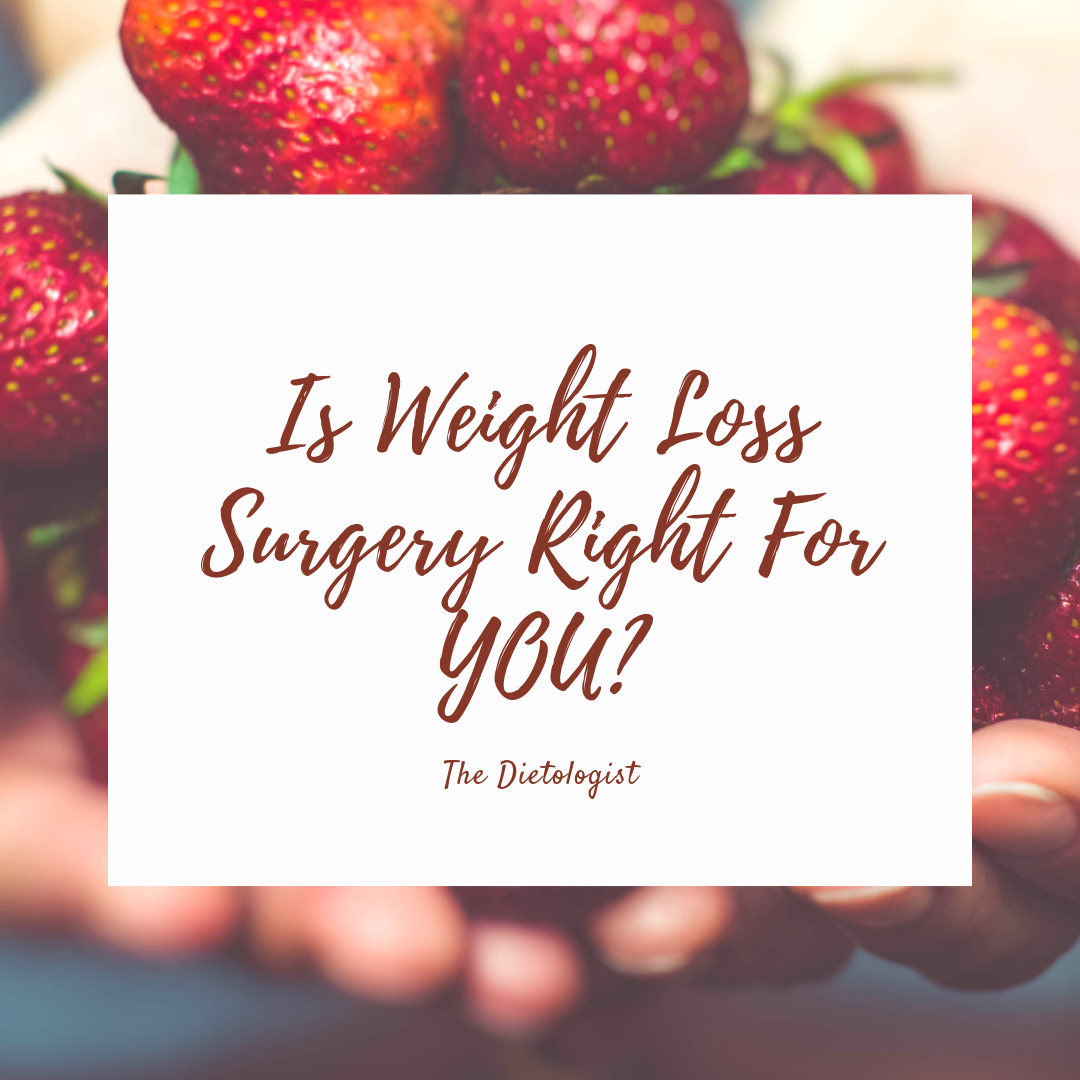WEIGHT LOSS TIPS THAT ANYONE CAN USE
At The Dietologist I work with clients who are considering having weight loss surgery, along with supporting those who have undergone the procedure and need help with aftercare. Each client has individual needs and together we create a plan that works best for them, but there are lots of different tips for weight loss that anyone can use, with or without bariatric surgery.

Great Weight Loss Tips that Anyone Can Use
Don’t skip breakfast, if you’ve recently had surgery.
By not eating breakfast your body will lose out on the essential nutrients and energy it needs to start the day, which will lead to hunger and potential snacking later in the day to make up for it. If time in the morning is something that can be an issue, try to prepare a breakfast the night before - overnight oats is a great meal to place in the fridge overnight and topped with fruit in the morning. If you’ve recently had surgery try having a meal replacement to get that protein in. Once your weight loss stabilises we can move things around if you’t feel hungry in the morning.
Remove the concept of a “diet.”
Don’t label foods as ‘good’ and ‘bad’ and don’t restrict yourself from any foods. Restricting foods from your daily diet will potentially lead to cravings and binge eating. Allow yourself to eat foods that you enjoy occasionally and look at your eating habits as a lifestyle change instead of a diet.
Eat a balanced diet. The more colourful your food is, the better! Eat plenty of vegetables, proteins and a small amount of starchy carbohydrates in the form of brown rice, brown bread and potatoes. If you’ve recently had surgery you may struggle with bread and pasta so be careful. Avoid eating lots of processed foods or foods that are high in saturated fat, sugar and salt. Fruit can be a great snack to curb sugar cravings.
Use a smaller plate and eat mindfully.
Reducing the size of your plate also reduces portion sizes. Avoid distractions, take your time when eating, chew slowly and put your cutlery down in between bites. Remember that it takes about 20 minutes for your stomach to feel full, so take your time.
Exercise regularly. Taking part in regular exercise not only releases endorphins into your body, but it can help to reduce your risk of major illnesses including cancer, heart disease and Type 2 diabetes. Regular physical activity - ideally 30 minutes of exercise, five times a week - can also help to boost mood, energy levels, sleep quality and self-esteem, as well as reducing the risk of stress, anxiety and depression. Try and do a form of exercise that you enjoy and are more likely to stick to - walking, running, swimming and cycling are all great forms of exercise. Start slowly and build up levels.
Drink plenty of water. The feelings that the body experiences when it is hungry and thirsty are very similar, so make sure that you stay hydrated and drink plenty of water. On average you should drink between 1.5 - 2 litres of water a day. To make it more interesting, add a fresh slice of cucumber, lemon, lime or ginger to water to add natural flavour (and a few extra nutrients).
Cut down on your alcohol intake. Did you know that an average-sized glass of wine contains the same amount of calories as a bar of chocolate? Alcohol is high in sugar and calories, and when we have alcohol in our system our fat-burning is inhibited and the storage of fat increases. Alcohol also reduces our mental inhibitions which is likely to encourage mindless eating on unhealthy snacks. Reduce your alcohol intake to just a few units a week and eat a healthy meal before a night out with friends.
Stock up on healthy snacks and keep them to hand in case you feel hungry. Keeping healthy snacks within easy reach will allow you to satisfy any potential hunger and will prevent binge eating or consuming something unhealthy.
Don’t do everything at once. Start small and create healthy habits one step at a time - you could start by making sure that you have a healthy breakfast each morning, then adding in a 30 minute daily walk, then substituting sugary drinks for water.
How I Can Help
Remember that when it comes to weight loss, one size certainly doesn’t fit all. Your weight, health challenges, weight loss and lifestyle are all unique to each person. Good nutrition is about finding the right balance for you to help you lose weight and keep it off.
I want to help you get to grips with weight loss, emotional eating and improve your relationship with food to help you move away from FAD diets, counting calories and weighing food. To find out more and to book a discovery call, visit my website here:
https://www.thedietologist.co.uk/#CONTACT



